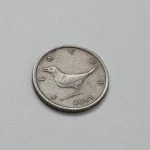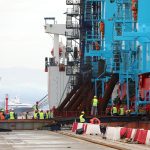As Poslovni Dnevnik/Marija Crnjak writes, after two years of stagnation in the material rights of workers in the Croatian tourism sector, this year, all major domestic tourism companies have decided to make a significant step forward in increasing the material rights of their workers.
Valamar, Plava Laguna, Aminess, Maistra, Jadran and LRH will all pay their employees the maximum non-taxable amount as allowed by current tax regulations, and their salary increase will be from 5.5 to as much as 50 percent for certain jobs.
The main reason is the chronic shortage of workers who began to threaten the survival of this sort of business, as was pointed out by the unions in the Croatian tourism sector. Although the unions welcomed the decisions of these employers in the announcements that have been being made over recent days, they still made sure to note that they were forced to take this route, and it isn’t because of some deep desire to do so.
They also noted that last year, due to the uncertain tourist season until the summer arrived, accompanied by a lack of workers, workers’ rights were violated on a large scale.
The unions and the inspections were biting their nails often because that year was difficult for everyone, but this year there will be no procrastination, Marina Cvitic, president of the Trade Unions of Istria, Kvarner and Dalmatia, explained.
“We do need to be honest and say that this increase in wages is primarily the result of the situation on the labour market. From 2010 to 2019, salaries increased from 2 to a maximum of 4 percent. At that time, all companies operating within the Croatian tourism sector achieved very good results with a profit of millions, acquisitions were made, investments were made in facilities, there was money for everything except the employees. As such, there was no major employment for an indefinite period, on the contrary, the number of permanently employed workers only decreased as the elderly retired,” recalled Marina Cvitic.
All this drove these workers out of Croatia, not only seasonal workers, but also permanent, very high quality workers. At the time when the migration of workers within the EU was made possible, many workers emigrated.
“At the end of last year alone, it could be sensed that employers intended to be much more generous this year compared to the years before the pandemic. So today we have a situation in which companies within the Croatian tourism sector have poorer results than they did before the pandemic, and yet employee salary increases and other material rights are much higher. The attitude towards workers in most companies has changed significantly. Back at the end of 2021, the number of workers on permanent contracts increased significantly. The number of permanent seasonal workers who are allowed to have an employment relationship and certain incomes throughout the year has also increased.
As a rule, a contract is no longer concluded with seasonal workers for a month or two, but for a longer period of time. One-time non-taxable awards are usually given in the most intense seasonal months,” explained Cvitic.
The union attributes a significant role to itself in creating this wage policy, including an initiative to provide free meals to local workers, and to make adjustments to transportation fees. However, violations of workers’ rights are still almost normal among small employers.
For more, check out our business section.











